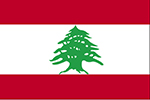
Population
6M+
CHRISTIAN PERSECUTION STATUS
minimal
Freedom
CHRISTIAN POPULATION
39%
Status of
the church
Located at the meeting point of three continents, Lebanon is a place of great cultural and religious diversity. Lebanon is 59% Muslim and 39% Christian, with 2% accounting for other religious minorities. There are fears about the increasing Muslim majority due to increased attacks on Lebanese Christians. Many Christians claim they are only protected because they are represented in government – a unique trait in a Middle Eastern country. Parliamentary member, Gahzi Yousef, has spoken of the importance of keeping the Christian community in Lebanon intact to maintain diversity but fears that too many Christians are emigrating. (International Christian Concern) The Shia militia Hezbollah, which controls large parts of the country, also harasses Sunnis and other groups it perceives as a threat.
Since the end of the 15-year civil war, approximately 350,000 Lebanese remain internally displaced, which has resulted in the isolation of large portions of the population. There also remain almost 400,000 Palestinian refugees in southern Lebanon, who have not been allowed to return to Palestine following the 1948 Arab-Israeli War (Middle East Concern).
Lebanon’s literacy rate is at an average of 93.9% of the population aged 15 and above. Of a population of 6.2 million (2016 estimate), some 74% have access to the internet. (CIA World Factbook) According to SAT-7 surveys carried out in 2008, 6.6% of the population has watched SAT-7 or continue to watch it.
Location
Prayer points
What our viewers are saying
Lebanon
All Things Are Possible »